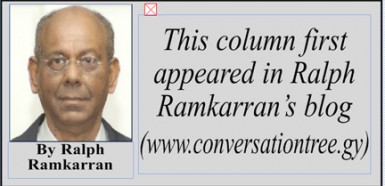The right to question took centre stage last week in the National Assembly. The Speaker ruled that Mr Anil Nandlall abused the right in relation to a number of questions tabled by him. The questions appeared to be quite innocuous, even if the information sought was a bit much. In relation to the persons pardoned by President Granger during last year, the questions asked for their names, addresses, offences committed, criminal records, length of sentences, process and criteria employed, how many persons granted pardons were subsequently charged with offences, the names of those persons and the offences for which they were charged.
 The Speaker was not required to and did not give any reasons for his ruling. But over the past fifteen years Speakers have sought to explain their rulings in order to demonstrate that their decisions are based on rational considerations. This effort was intended to limit allegations of bias.
The Speaker was not required to and did not give any reasons for his ruling. But over the past fifteen years Speakers have sought to explain their rulings in order to demonstrate that their decisions are based on rational considerations. This effort was intended to limit allegations of bias.
The Standing Orders do not define what is an abuse of the right to question, but we can try to figure it out. Standing Order (‘SO’) 20(1) starts with the following sentence: “Every Question shall conform to the following rules… “Fifteen rules follow, fourteen of which begin with the phrase “a Question shall not…” The fifteenth is close to that beginning. The next rule, SO 20(2), states: “If the Speaker is of the opinion that any Question…is an abuse of the right of questioning or infringes any of the provisions of this or any other Standing Order, he or she may direct – (a) that it may be printed or asked with such alterations as he or she may direct…”
